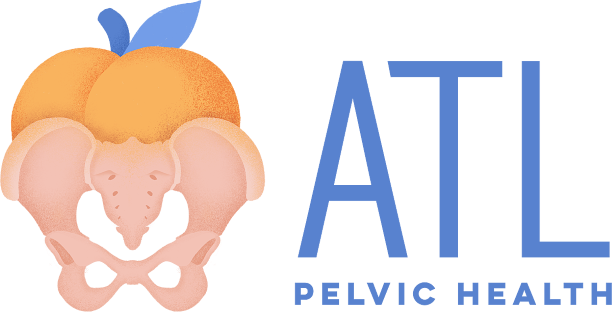The Link Between Postpartum Emotions and Pelvic Health
Whether you’re a new mom or a new mom of multiples, the postpartum period is like a juggling act where you’re trying to meet all the needs of a tiny human (or humans) while also keeping yourself alive. Your body has had 9 months to make room for a growing baby, and the 4th trimester starts the process of recovery and adapting to life with a newborn. When you think of postpartum recovery your first thought may not be about your pelvic floor muscles. You may be noticing ways your body is working differently or feels different, but maybe you aren’t sure what to do about it or if there is even something that can be done. There are so many postpartum experiences that women don’t talk about, but some might be discussed in a way that makes it seem that “common” is “normal.” We may hear other moms say they can’t cough or sneeze without peeing, so we accept that it’s “just a part of being a mom.” For many moms, urinary incontinence is just one of the symptoms they’re experiencing postpartum, but the impact goes beyond physical health. Let’s take a closer look at how pelvic floor dysfunction can impact your mood and your daily life.
What is pelvic floor dysfunction?
Pelvic floor dysfunction is the inability to correctly contract, relax and coordinate pelvic floor muscles to urinate or have a bowel movement. Symptoms can include constipation, urinary or fecal incontinence, pain in your pelvic region, discomfort or pain during sex, or low back pain. (For detailed information on the pelvic floor, check out this blog post.
How can pelvic floor dysfunction (PFD) impact your life?
PFD can impact your ability to care for yourself and your baby. Depending on your symptoms, it could mean frequent trips to the bathroom or discomfort that limits your range of motion. You may find that you’re having to adjust the way you do small things, like putting your baby in the crib. Coping with a chronic condition is physically and mentally exhausting. It can be disappointing and frustrating to feel like discomfort or pain is keeping you from being the parent you want to be.
In the 4th trimester, pelvic pain can affect your body image. With so many physical changes leading up to delivery and after birth, you may already be feeling like your body is unfamiliar. Maybe your labor and delivery involved an unplanned or unwanted intervention or you did not feel fully in control of decisions or your body. Coping with pelvic discomfort or pain can add to feeling disconnected with your body.
Discomfort may limit your desire or ability to enjoy life, such as intimacy with your partner, exercising, or spending time with friends. If you’re coping with incontinence, it can be hard to get out of the house, leaving you feeling isolated. Pain or discomfort can be a huge barrier to sexual intimacy. It’s also challenging to feel confident, sexy, or relaxed when you’re not feeling your best or you’re having to make frequent trips to the bathroom.
PFD can disrupt your sleep. Many women experience disrupted sleep during pregnancy, and life with a newborn often brings even more challenges that impact sleep. The last thing a new mom needs is another reason to wake up, but that may be happening due to pain, discomfort, or incontinence. When we are sleep-deprived, we know that it is hard to focus and we feel cranky and more easily overwhelmed, but it is also harder to feel the emotions we like to feel.
PFD can add to overwhelm. It’s hard to care for yourself while taking care of a brand-new little human. With the amount of pediatric visits and follow-up appointments with your own doctors in the postpartum time, having symptoms of PFD can feel like yet another thing on your (already full) plate. If you’ve found that exercise was helpful but now your activity is limited, it’s even harder to prevent feelings of overwhelm.
Any combination of these stressors can make it more likely to develop a postpartum mood disorder like postpartum depression (PPD) or postpartum anxiety (PPA). Caring for a newborn is already a major adjustment, but having PFD can cause even more change and make it difficult to access your usual coping skills.
What Can I Do to Feel Better?
You don’t have to wait until you’re postpartum or experiencing symptoms to meet with a pelvic floor therapist or mental health professional. Both professionals can help you in whatever stage you are in so that you can feel your best and enjoy more of what you love.
Pelvic floor therapists can work with you to develop strategies to support mobility and bladder & bowel functioning during pregnancy. In the fourth trimester, pelvic floor physical therapy can address pelvic floor dysfunction and assist you in returning to daily activities.
Postpartum mental health therapists can address symptoms of stress, anxiety, depression, or other areas of concern. Counseling can also support you in improving your relationship with your body, your partner, or friends and family.
While pelvic floor dysfunction can impact your daily activities and affect your mood, it does not have to shape your postpartum experience. With the support of pelvic floor therapy and postpartum counseling, you will be able to feel more present with the people you love and engage more fully in the activities you enjoy.
Interested in learning more about how pelvic floor PT or postpartum counseling can support you during the fourth trimester? Schedule a discovery call with one of our pelvic floor therapists or a free consult with a postpartum therapist today!



